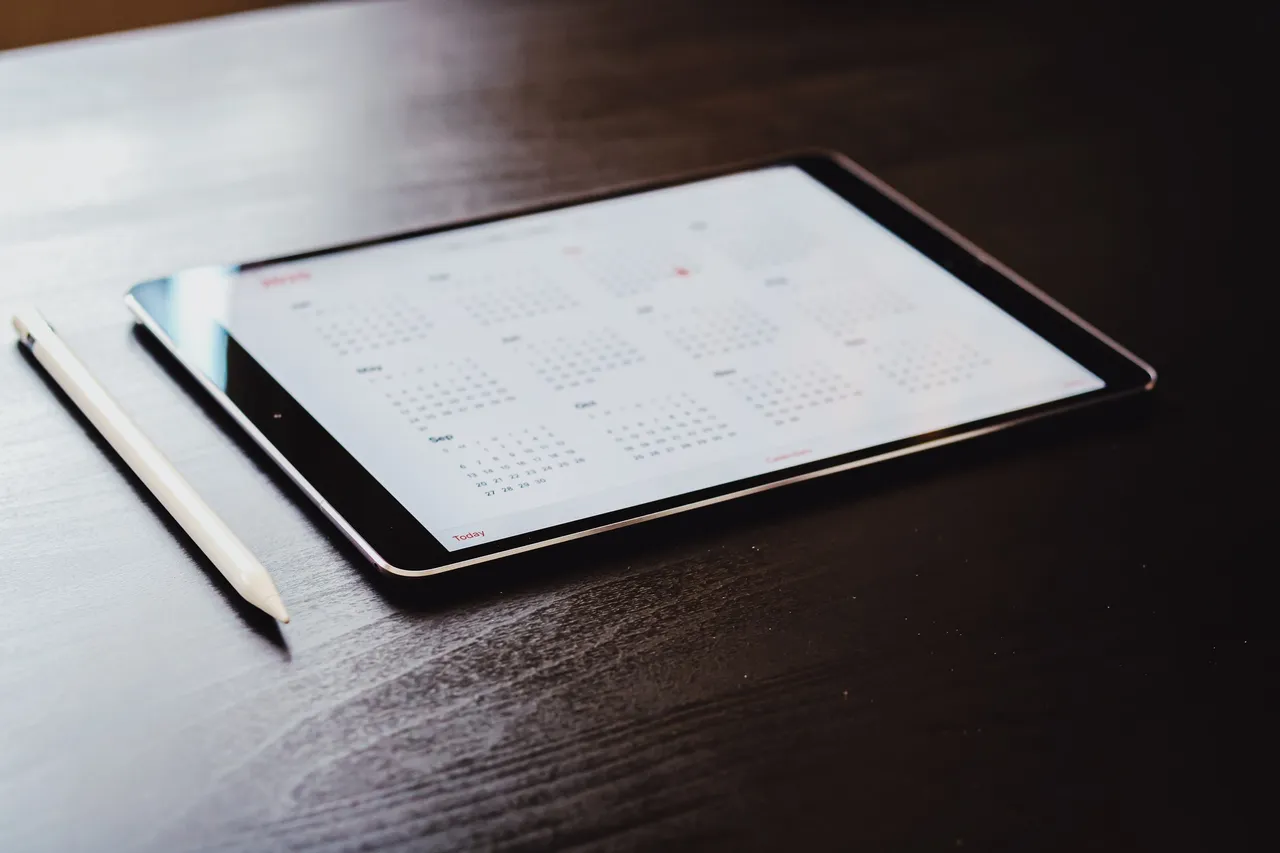
Photo by Chris Leipelt on Unsplash
Welcome to the third and final part of this series about time management.
Last week we first had a look at Why You Need to Know How to Prioritize.
Then we took a look at Why You Should Keep a Diary or a Calendar and we discussed some tips for effective scheduling.
Today, we will be discussing at least 10 ways that can help you to take control of your time.
Not all points will be applicable to everybody, so just go over them and see what will be useful to you as an individual. You might even have other tips which are not mentioned here. Please feel free to share them with us in the comment section below. That way we can all learn from one another.
10 Ways to Take Better Control of Your Time.
Keep Your Own Master Diary.
- Many business executives carry a master diary with them wherever they go. Another diary may be kept at the office or at home, where some other staff member also has access to follow your schedule for making appointments etc. The important point is the diary, called the master diary, is kept by you and is the control point of all activities. Obviously, these two diaries constantly need to be synchronized and updated. With the technology of today, we often have the benefit of having a calendar on our mobiles. This can easily be synchronized with a computer at the office, so appointed staff can always be informed and up to date with your schedule, and any misunderstandings or double booking can be avoided.
Allow Extra Time For Unfamiliar Activities.
- If it is an activity you have done before, you can estimate the time needed to complete that activity. But if this is a new or unfamiliar activity, it becomes a guessing game. It is safer to be liberal in allowing more time rather than to be conservative and allow too little time.
Isolate Yourself To Avoid Interruptions.
- Close the door.
- Have telephone calls screened (unplug your phone or activate your mailbox if you are alone)
- Find a neutral place (coffee shop or restaurant) if you are not in your office.
Be Able To Adjust.
- It might happen that you have perfectly scheduled all your activities, when some other, more important activities appear on the horizon. Allow yourself enough flexibility to adjust and reschedule your activities. This does not mean you should “chop and change” every five minutes (then you might as well stop planning altogether – going back to the old ways), just be flexible enough to allow maximum productivity!
Schedule Key Activities For Times When You Know You Enjoy Peak Energy.
- Are you a morning person or are you an afternoon person? Are you even an evening person? Aim to schedule your high-priority activities for these times when you perform at your best and you are most alert. You will see a drastic improvement in your productivity.
Know Where You Are Going And How To Get There.
- Whenever you need to attend meetings, seminars, etc., plan ahead of time, by investigating the various routes you could take. With the technology available to us today, it is often possible to compare various options, such as fastest route, shortest route, scenic route (not recommended for the purpose of this article…..lol). Take into consideration the time of day. Is it peak hour? Is it during lunchtime? These will all have an effect on traffic volume. Allow enough time for unforeseen situations while traveling. It is also a good idea to discuss the various routes with your host (or their secretary/receptionist), as they would normally know the best or most practical route.
Group Your Appointment Activities For Better Travelling Time.
- This point goes hand-in-hand with the previous point. By planning your traveling activities in advance, you would be able to schedule two, three, or more meetings for the same trip. This will eliminate unnecessary repetitive trips.
You Are Allowed To Say “No”.
- We are often our own worst enemies by thinking we should be able to accommodate everybody. We believe the lie of “other people’s time is more valuable than our own”.
- You must also consider your own priorities and goals very seriously. You should always be working towards achieving your main objectives/goals. These should be broken into smaller action steps to be achieved and monitored on a weekly basis. If this activity does not complement or contribute to achieving your own objectives, it is going to be a waste of your valuable time. Achieving your own goals should also benefit other people anyhow, so by continuously neglecting your own goals, you will eventually end up not being able to help other people either.
- There’s no need to be rude. Here are some ways to say no in a diplomatic, courteous way;
- Rejecting the request: “I don’t think I’m the best person for the job/presentation right now, as I cannot give it the time it deserves.”
- Recommend someone else: “I’m going to ask you to call John. I am sure he will be able to give you better advice/assistance”.
- Delay the request: “Would you mind if we discuss this when I see you this afternoon?”
Carry Your To-Do List, Some Admin Work, and/or Reading Material With You.
- You may encounter waiting times (or just some open time) between some activities during the day. You can easily turn this into productive time by making phone calls, doing some paperwork, or doing some research/reading. This might be just what you need to achieve many of your objectives/goals even sooner than what you expected too.
Never make Assumptions. Confirm.
- Besides being rude, an unscheduled call/visit is often unproductive. It is unprofessional and very annoying when calling/visiting someone, to just assume they have time to spend with you. On arrival (normally you have an appointment for a physical visit anyhow), or when making the phone call, just ask whether it is convenient for the other person to speak to you. They might be in the middle of something…..another call or a business meeting. They might not even be in, and it was a total waste of time. By just confirming, nobody can be offended, and everybody is more relaxed.
- The other possibility is also that you might even have a scheduled meeting. Confirm your meeting ahead of time. Maybe the day before, just make a courtesy phone call and confirm the appointment. Maybe the other person is not as well organized as you are, and he honestly forgot about the meeting. By confirming, you can prevent wasting time and lots of frustration.
Summary.

Photo by Omar Al-Ghosson on Unsplash
By now you should know the importance of getting started with goal setting.
Now you can include action steps to achieve your goals into your daily activities to achieve your goals.
Prioritize your activities to increase your productivity.
Develop a diary to have a proper time schedule for when each activity should be done.
Make use of these tools and take control of your time!
And with that, I will end this three-part series about time management.
Thank you for reading my post. I do appreciate it!